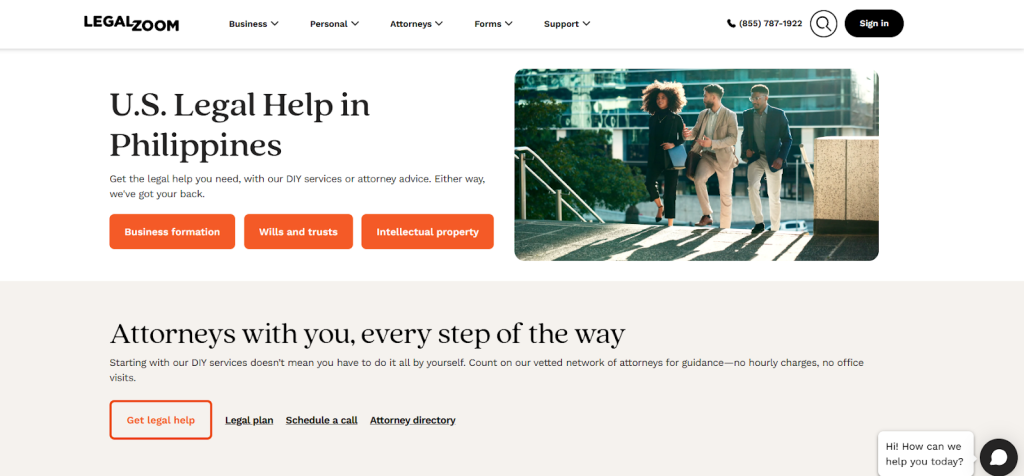If you need to draft a will, form a business entity, or protect your intellectual property—without battling hours of legal complexity—consider taking action now with LegalZoom. This trusted platform makes the process simpler, affordable, and guided by the principles of law.
Law Meets Technology: The Rise of Online Legal Platforms
In recent years, the legal field has experienced profound transformation. Traditional law firms, with billable hours and in-office consultations, are being challenged by technology-based platforms that promise faster, more accessible, and lower-cost solutions. Among these, LegalZoom stands out as a pioneer in democratizing access to legal tools.
LegalZoom offers self-service document generation, business formation services, trademark and copyright filing, estate planning tools, and more. Unlike a traditional law firm, however, it does not provide blanket legal advice in all jurisdictions. Instead, it connects users with independent attorneys when needed. This hybrid model allows customers to access reliable legal resources at lower upfront costs while retaining the option of professional guidance.
But as with any innovation, the marriage of law and technology comes with both promise and controversy—a tension between enhancing access and maintaining legal rigor.
The Law at Stake: Unauthorized Practice & Regulatory Boundaries
One of the central issues surrounding platforms like LegalZoom is the doctrine of unauthorized practice of law (UPL). This set of rules, enforced by state bars and courts, prohibits unlicensed individuals from giving legal advice or representation. When does a document-preparation service cross the line into legal advice? That question is at the heart of ongoing debate.
LegalZoom has faced challenges in multiple states, often centered around whether its interactive questionnaires constitute legal guidance. In response, several states have reached agreements that allow the platform to operate with clear disclaimers, while others continue to closely regulate such services.
At the heart of the matter is a core tension: can technology substitute parts of what lawyers do—if only for routine tasks—without undermining consumer protection and professional accountability?
Strengths and Risks: What LegalZoom Offers—and Where It Falls Short

Advantages
- Affordability and Speed
Hiring a lawyer for every document or filing is expensive. LegalZoom provides a cost-effective alternative, delivering faster turnaround for standard legal tasks. - User-Friendly Interface
Its step-by-step forms help non-lawyers navigate processes like forming an LLC or drafting a will with guided prompts. - Attorney Support When Needed
While not a full law firm in every context, LegalZoom connects users to licensed attorneys in select jurisdictions, bridging the gap between self-service and legal advice. - Greater Access to Justice
Many individuals with legal needs lack the means to hire a traditional attorney. Platforms like LegalZoom lower barriers, giving more people the ability to protect assets, formalize agreements, and plan estates.
Risks and Criticisms
- One-Size-Fits-All Templates
LegalZoom’s documents are standardized. Critics argue they may fail to capture nuances specific to your jurisdiction or situation. - No Full Legal Advice Everywhere
Complex disputes, litigation, or unique contracts still require direct attorney involvement. - Liability and Accountability Gaps
Since LegalZoom is not always considered the practice of law, users may not benefit from the same protections as with traditional legal representation. - Regulatory Uncertainty
Laws and definitions of “practicing law” differ from state to state, which may affect how such platforms operate.
Best Practices: When and How to Use an Online Legal Service
If you decide to use LegalZoom or a similar service, consider these safeguards:
- Use it for straightforward matters. Forming an LLC, filing a trademark, or drafting a basic will are ideal uses.
- Understand the limits. Always read disclaimers to know where the platform is not giving legal advice.
- Consult an attorney for complex issues. Litigation, mergers, and disputes require direct legal counsel.
- Check local rules. Jurisdiction matters; what is permissible in one state may not be in another.
- Keep records. Save your forms and responses for review or updates by an attorney later.
What This Means for the Future of Law
The tension between technology and legal tradition is ongoing. Some argue that unauthorized practice rules primarily protect lawyer monopolies, while others stress that safeguards exist to protect consumers from inadequate legal services.
Regulators are adapting slowly, with some states revising rules to explicitly allow interactive legal tools under certain conditions. Meanwhile, law firms are embracing automation and virtual service models to stay competitive.
The future is likely to be hybrid: professionals leveraging technology for efficiency, and platforms like LegalZoom providing broader access to foundational legal tools. Done right, this balance can expand access to justice without sacrificing quality.
Take the Next Step Confidently

If you’ve been postponing legal tasks—whether forming a business, drafting a will, or registering intellectual property—now is the time to act. Get started with LegalZoom today and benefit from tools designed to simplify your legal needs.







